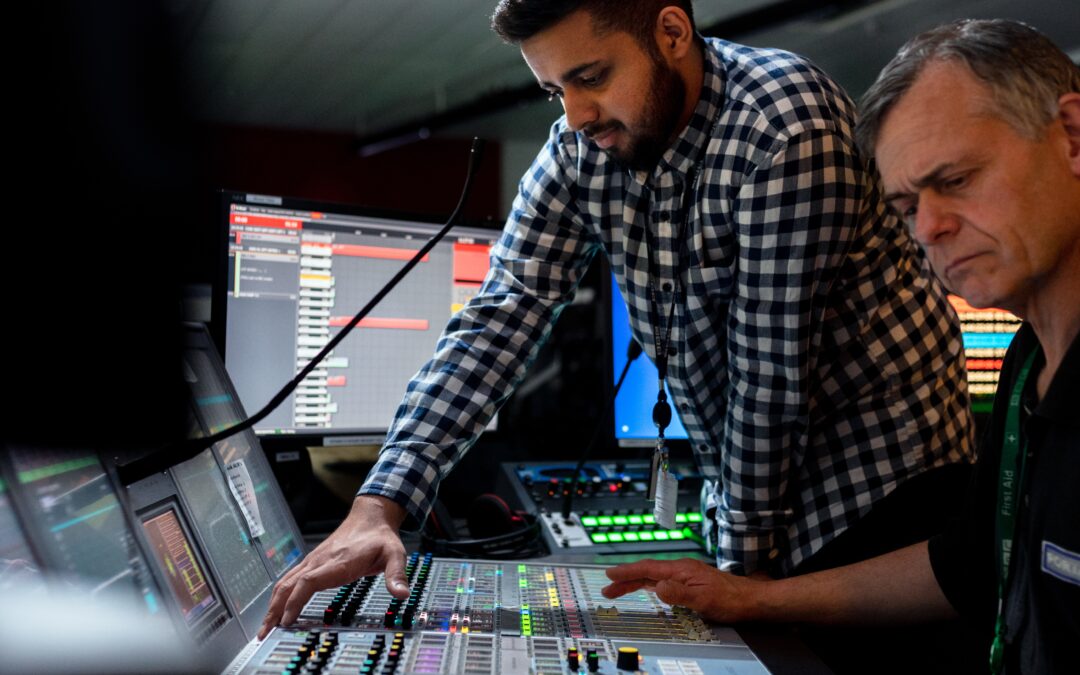Voice-over classes are an excellent way for aspiring voice-over artists to learn the techniques and skills necessary to succeed in the industry. Taught by professionals who have years of experience in the field, these classes provide students with the opportunity to develop their vocal abilities, improve their delivery and performance, and gain insight into the business side of the industry. In this article, we’ll discuss what voice-over classes are, what you can expect to learn from them, and some of the benefits of taking them.
What Are Voice-Over Classes?
Voice-over classes are educational courses that are designed to teach students the necessary skills and techniques needed to succeed in the voice-over industry. These classes are typically taught by experienced professionals who have worked in the industry for many years and can provide students with valuable insights and advice.
The classes are usually held in a classroom setting, but they can also be done online. They typically cover a wide range of topics, including voice acting, vocal techniques, script analysis, performance skills, studio etiquette, and business practices.
What Can You Expect to Learn From Voice-Over Classes?
Voice-over classes can cover a wide range of topics, depending on the instructor and the level of the class. However, some common areas of focus include:
Vocal Techniques: One of the primary focuses of voice-over classes is vocal techniques. Students will learn how to control their voice, breathe correctly, and develop their range and versatility. They will also learn about vocal health and how to maintain their voice over time.
Script Analysis: Another key area of focus is script analysis. Students will learn how to break down a script, identify the different characters and their motivations, and understand the tone and mood of the piece. This is critical for delivering a convincing performance.
Performance Skills: Voice-over classes also teach performance skills, including how to project confidence and energy, how to convey emotion and nuance, and how to build character relationships with just their voice.
Studio Etiquette: In addition to the creative aspects of voice-over work, students will also learn about studio etiquette. This includes things like how to work with a director, how to take direction, and how to conduct themselves in a professional manner.
Business Practices: Finally, voice-over classes often cover the business side of the industry. This includes things like finding work, negotiating contracts, and managing finances.
What Are the Benefits of Taking Voice-Over Classes?
There are many benefits to taking voice-over classes. Here are just a few:
Networking: Voice-over classes provide an excellent opportunity to meet and network with other aspiring voice-over artists. This can be invaluable when it comes to finding work and building relationships in the industry.
Feedback: One of the biggest benefits of taking voice-over classes is the feedback you’ll receive from the instructor and your classmates. This feedback can help you identify areas for improvement and develop your skills more quickly.
Expert Instruction: Voice-over classes are typically taught by experienced professionals who can provide expert instruction and guidance. This can help you avoid common mistakes and develop your skills more quickly.
Career Development: Finally, taking voice-over classes can help you develop your career as a voice-over artist. By learning the necessary skills and techniques, you’ll be better equipped to find work and succeed in the industry.
In conclusion, voice-over classes are an excellent way for aspiring voice-over artists to develop their skills, gain valuable feedback, and build relationships in the industry. By taking classes taught by experienced professionals, you’ll be able to improve your vocal techniques, script analysis skills, performance abilities, studio etiquette, and business practices. This can help you develop your career as a voice-over artist and succeed in this exciting and challenging field.

